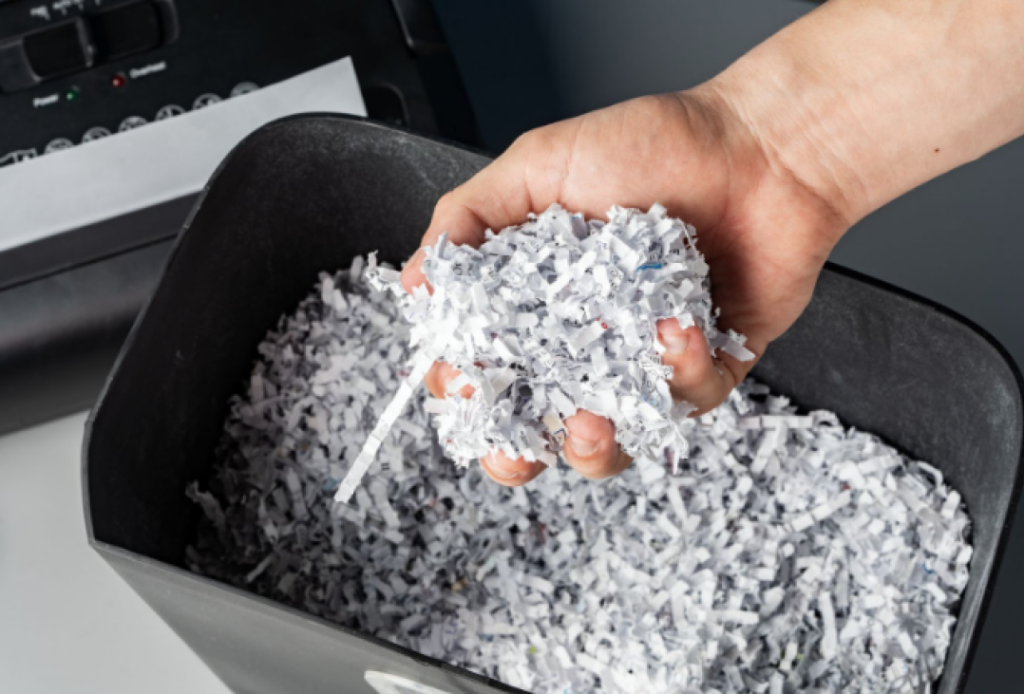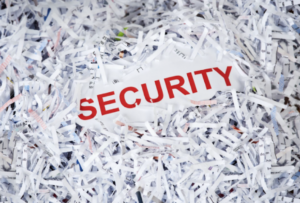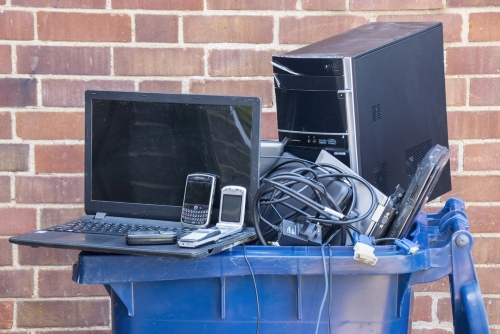Why Secure Document Shredding Matters
In an era of rising identity theft and data breaches, businesses and individuals must proactively protect sensitive information. A document-shredding service is one of the most effective ways to safeguard confidential data. Improper disposal of personal documents or business records can lead to financial fraud, regulatory penalties, and reputational damage.
Secure document destruction is not just a business best practice—it’s often a legal requirement. Various regulations, including FACTA (Fair and Accurate Credit Transactions Act), HIPAA (Health Insurance Portability and Accountability Act), and GLBA (Gramm-Leach-Bliley Act), mandate the proper handling and disposal of sensitive documents. A professional shredding process ensures that businesses comply with these regulations while protecting their clients and employees.
Additionally, many companies offer personalized services to accommodate different security needs, whether for routine shredding or one-time bulk disposal.
This article will explore 10 types of documents that should always be shredded to prevent identity theft, ensure compliance, and maintain data security.
Key Risks of Improper Document Disposal
Before examining the documents that must be shredded, it’s essential to understand why document security is critical. Sensitive information that falls into the wrong hands can pose severe risks to businesses and individuals.
1. Identity Theft & Fraud
Dumpster diving remains a common tactic criminals use to retrieve personal information from discarded paperwork. Bank statements, credit card offers, and tax documents contain enough details for identity thieves to commit fraud. Even improperly discarded hard drives can store sensitive data that cybercriminals may exploit.
2. Regulatory Compliance & Legal Penalties
Businesses in healthcare, finance, and legal services must securely dispose of confidential information. Failure to comply with HIPAA, GLBA, and FACTA regulations can result in hefty fines and lawsuits. Proper disposal methods, including secure document destruction and hard drive shredding, help organizations stay compliant and avoid legal trouble.
3. Corporate Espionage & Data Breaches
Competitors and cybercriminals often target businesses for sensitive data, including client records, employee files, and proprietary information. A single exposed document could compromise a company’s competitive edge or customer trust. Securely managing physical and digital records—including tracking their location and ensuring strong password protection for electronic files—adds an extra layer of security.
10 Documents You Should Always Shred for Document Security
Proper document disposal prevents identity theft, financial fraud, and data breaches. Many personal and business documents contain sensitive information that, if discarded carelessly, could be exploited by criminals. Whether you use an on-site document shredding service that securely destroys sensitive materials or another secure disposal method, shredding these documents is essential for safeguarding your privacy. If you’re looking for a convenient solution, mobile shredding is an effective way to ensure sensitive information doesn’t fall into the wrong hands.
Companies like All Points Mobile Shredding offer secure and convenient document destruction solutions for those seeking a reliable and professional shredding service. Our mobile shredding service lets you witness the process firsthand, giving you peace of mind that your confidential documents are disposed of properly. But what exactly should you be shredding? From financial statements to old medical records, certain documents contain sensitive information that could put you at risk if they fall into the wrong hands. Here are 10 documents you should always shred to protect your personal and business security.
1. Financial Statements & Bank Records
Any document containing account numbers, transaction details, or balance information can be used for fraud. Once they are no longer needed, shred old bank statements, investment reports, and financial summaries. Choosing a mobile shredding option ensures these documents are securely destroyed without leaving your premises.
2. Tax Returns & Related Documents
Tax documents contain Social Security numbers, income details, and employer information—making them a goldmine for identity thieves. The IRS recommends keeping tax records for at least three years before securely shredding them. If you handle large volumes of tax-related paperwork, on-site shredding services provide a secure way to dispose of these documents while maintaining compliance.
3. Medical Records & Insurance Documents
Under HIPAA regulations, businesses handling patient data must securely dispose of medical records to protect patient privacy. Individuals should also shred insurance statements, medical bills, and prescription information to prevent medical identity theft. Many organizations rely on mobile shredding to manage bulk disposal efficiently while adhering to privacy laws.
4. Pay Stubs & Employment Records
Documents related to payroll, employee records, or HR files should never be discarded carelessly. These often contain Social Security numbers, salary details, and tax withholdings, which fraudsters could misuse. Secure disposal methods, such as a document shredding service, can help prevent unauthorized access to sensitive employment information.
5. Credit Card & Loan Offers
Pre-approved credit card offers and loan solicitations are an easy target for identity thieves who can use them to open fraudulent accounts. Shred any unsolicited financial offers before discarding them. On-site shredding services are ideal for businesses that receive a high volume of mail containing sensitive financial details.
6. Legal & Business Contracts
Contracts, agreements, and confidential business documents should be destroyed once they are no longer used. Improper disposal of these files can expose trade secrets, financial obligations, or personal agreements. Companies often opt for mobile shredding solutions to ensure confidential business documents are securely destroyed without being transported offsite.
7. Utility Bills & Personal Correspondence
Utility bills contain customer account numbers, addresses, and payment details, which can be used for fraud. Personal letters with sensitive information should also be shredded to maintain privacy. For added security, individuals can check their security settings on online billing accounts to reduce paper statements and minimize identity theft risk.
8. Customer & Client Information
Businesses are responsible for protecting customer data under regulations like GLBA and FACTA. Any document containing client names, account details, or transaction history should be securely shredded to prevent data breaches. A document-shredding service can help businesses comply with data protection laws while ensuring confidential records are disposed of properly.
9. Expired Identification Documents
Old driver’s licenses, passports, Social Security cards, and employee ID badges should be destroyed once replaced. Criminals can use these documents for identity theft, forgery, or access to restricted areas. Using on-site shredding services prevents these documents from being lost or stolen before disposal.
10. Canceled or Expired Credit Cards
Even if deactivated, old credit cards should be shredded before disposal. Scammers can use account numbers, card details, or account history to commit financial fraud. To further enhance security, consider updating your security settings on financial accounts to reduce the risk of unauthorized access.
Individuals and businesses can protect their sensitive information and prevent identity theft by implementing secure disposal methods such as mobile shredding, document shredding, and on-site shredding services. Prioritizing secure shredding practices ensures that personal and financial details never fall into the wrong hands.
Best Practices & Industry Trends in Secure Shredding
With increasing data security and compliance concerns, businesses are adopting more rigorous shredding protocols tailored to their unique needs. Some key best practices include:
Implementing a Shredding Policy
Businesses should establish a formal document retention and destruction policy outlining:
- All documents must be shredded immediately and consistently, without exception, to eliminate any risk of identity theft, fines, breaches, lawsuits, or reputational damage
- How long to retain documents
- Who is responsible for overseeing secure disposal
- A schedule for regular shredding to maintain compliance and efficiency. For best compliance, a minimum of monthly shredding is recommended. This ensures that, in the event of a breach, businesses can demonstrate they shred documents in the “regular and ordinary course of business” using a NAID AAA Certified vendor like All Points Mobile Shredding
Using a Certified Shredding Service
Outsourcing to a professional paper-shredding service ensures compliance with federal and state regulations. All Points Mobile Shredding is NAID AAA Certified, meaning it undergoes regular and unannounced audits. Certified shredding providers also issue Certificates of Destruction, verifying compliance with data protection laws. Additionally, many services offer recycling options, ensuring that shredded paper is disposed of in an environmentally responsible manner.
Opting for On-Site Shredding for Maximum Security
On-site shredding services allow businesses to witness the destruction process in real time, ensuring complete confidentiality and compliance. Unlike off-site shredding, where documents are transported before destruction, mobile shredding eliminates risks associated with document handling and transport. It also provides a secure way to destroy private information, preventing unauthorized access.
By following a well-planned shredding schedule, businesses can enhance security, comply with regulations, and responsibly recycle sensitive materials.
How On-Site Shredding Supports Secure Document Destruction
On-Site Shredding vs. Off-Site Shredding vs. In-House Shredding
| Method | Security Level | Compliance | Convenience |
| On-Site Shredding | High – Documents shredded immediately | Meets industry regulations | No need to transport sensitive documents |
| Off-Site Shredding | Medium – Risk of interception before shredding | May comply, but depends on provider | Requires transport to facility |
| In-House Shredding | Low – Limited capacity and oversight | Risk of non-compliance | Time-consuming for employees |
Mobile shredding services provide a secure, compliant, and hassle-free solution for businesses handling large volumes of sensitive data.
Final Thoughts: Protect Your Identity with Secure Document Shredding
Proper document disposal is a critical safeguard against identity theft, compliance violations, and reputational damage. Whether you’re a homeowner discarding old financial records or a business handling private information, failing to shred confidential documents can put you at serious risk.
Implementing secure shredding practices can prevent fraud, maintain compliance with HIPAA, FACTA, and GLBA regulations, and ensure peace of mind. Opting for a professional shredding service adds an extra layer of protection. All Points Mobile Shredding offers on-site, NAID AAA-certified shredding for residential and commercial clients, providing secure, hassle-free document destruction at your doorstep.
For more details on how to protect your confidential data, visit our website or contact a trusted shredding provider today. Utilizing the right tools for secure document disposal ensures that your sensitive information remains protected.








